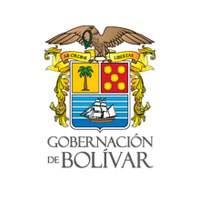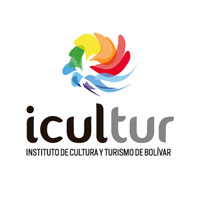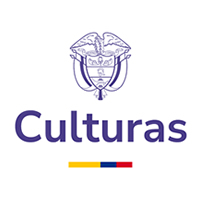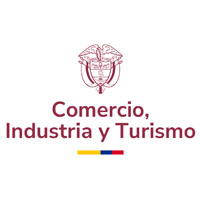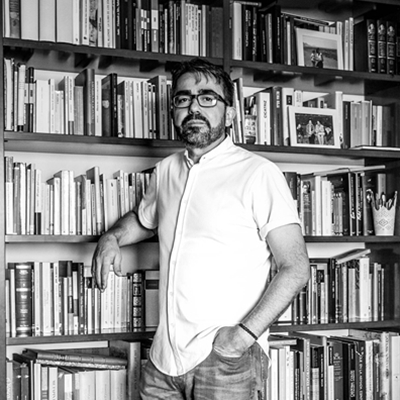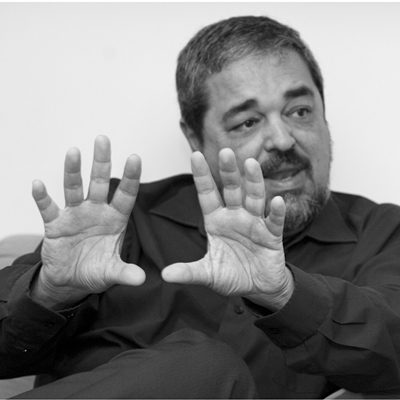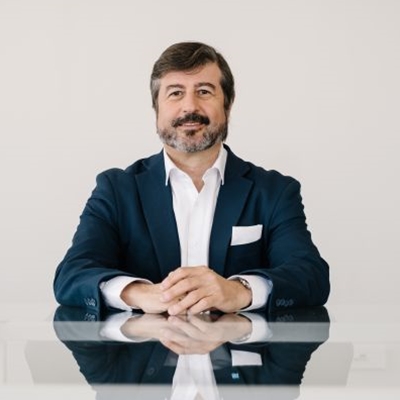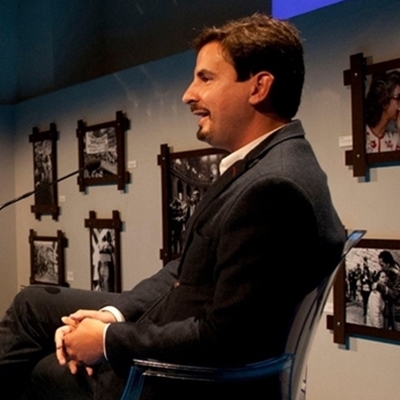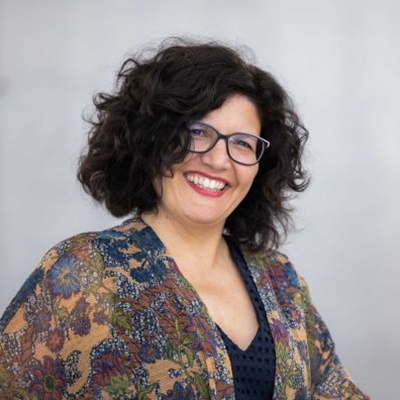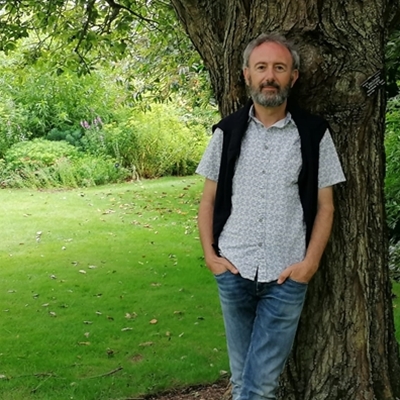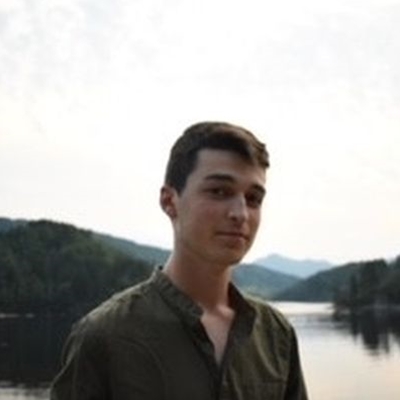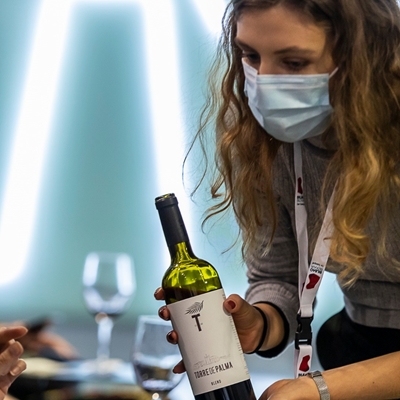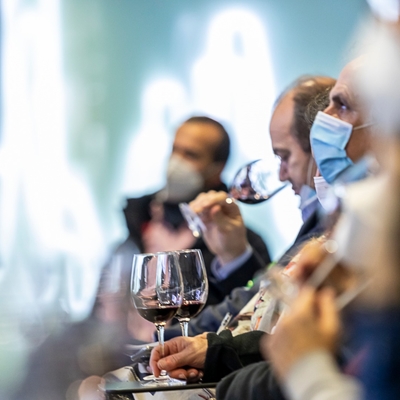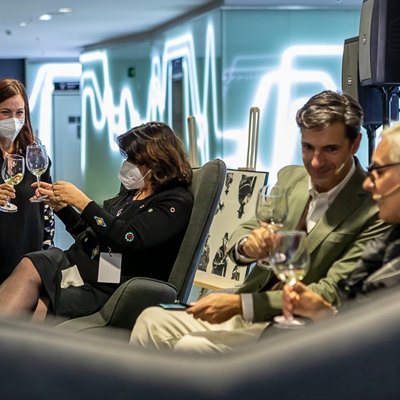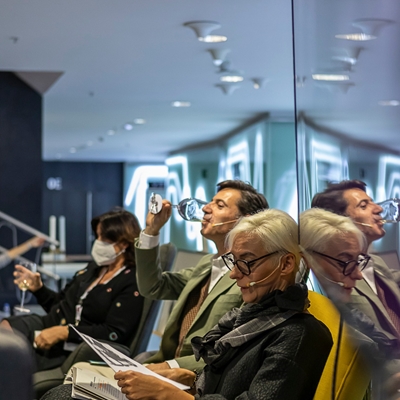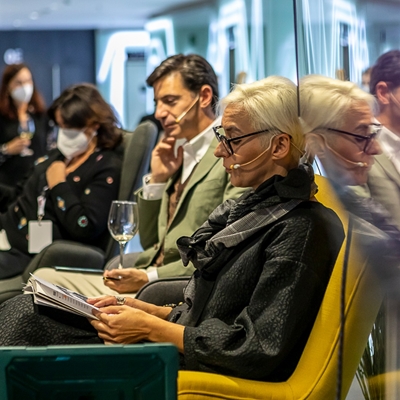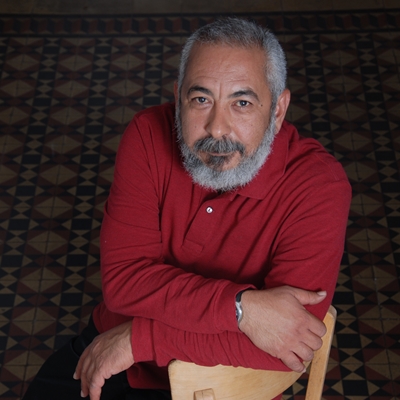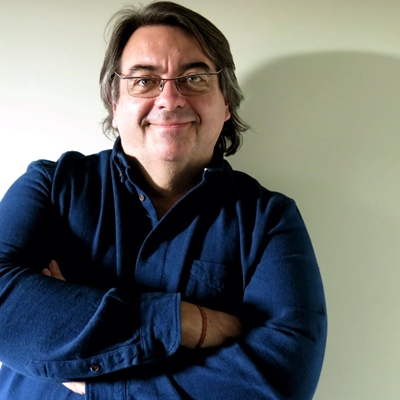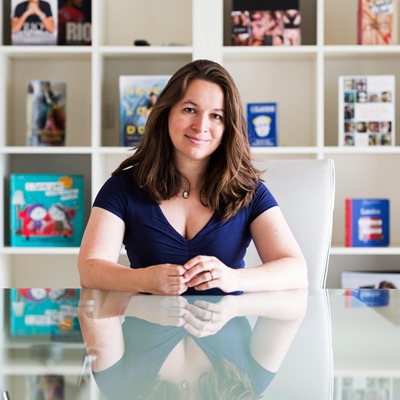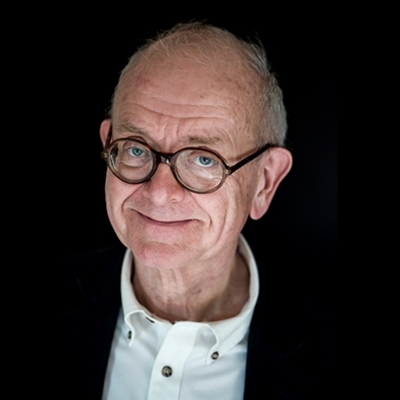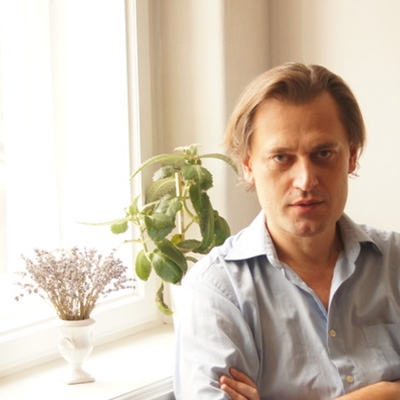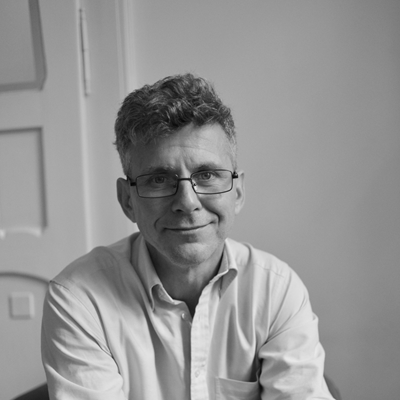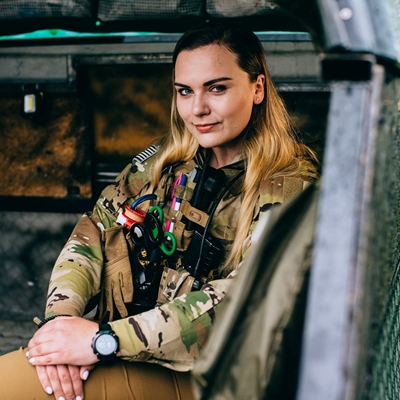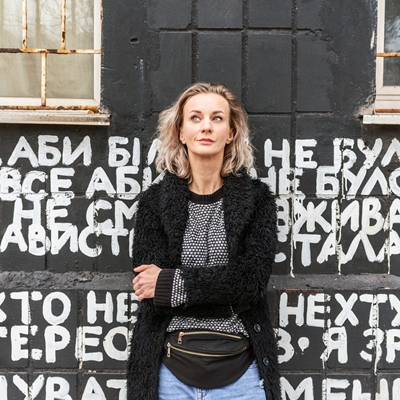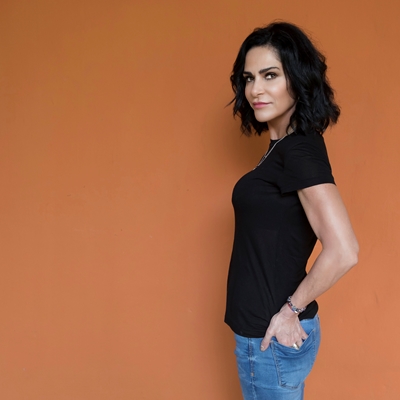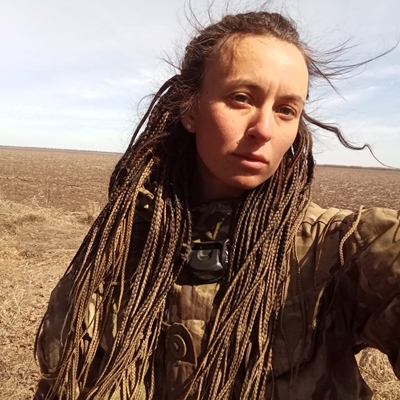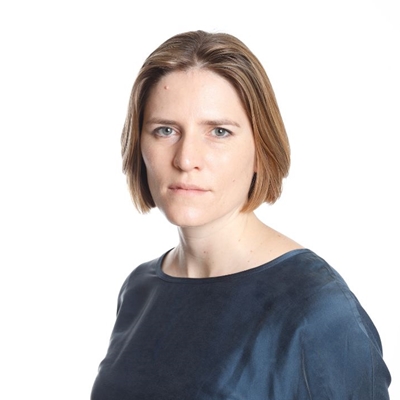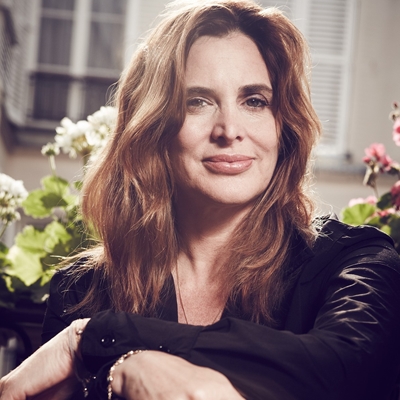Hay Festival Colombia Digital
Hay Festival Colombia took place from 21 to 30 of January 2022, with events in the cities of Cartagena de Indias, Medellín and Jericó. You are currently browsing the digital programme of the festival.
If you want to browse the in-person events of Hay Festival Cartagena de Indias, click here.
If you want to browse the in-person events of Hay Festival Medellín, click here.
If you want to browse the in-person events of Hay Festival Jericó, click here.
Event 13
Mariana Enriquez in conversation with Sarah Hepola
Haunting tales of horror and Argentine reality
The Texas Theatre (Main)
Argentine author Mariana Enriquez discusses her latest work and the haunting themes that permeate her writing. Moderated by bestselling author and journalist Sarah Hepola, this conversation will delve into Enriquez's new book, A Sunny Place for Shady People, along with her celebrated collections Things We Lost in the Fire and The Dangers of Smoking in Bed
Mariana Enriquez is known for her ability to weave horror and the supernatural with the stark realities of contemporary Argentine life. Her stories explore violence, death, and the dark undercurrents of society, offering readers a unique blend of literary horror and social commentary. In A Sunny Place for Shady People, she continues to push the boundaries of genre, and this conversation will offer insights into her creative process and the themes that drive her work.
Sarah Hepola, whose memoir Blackout: Remembering the Things I Drank to Forget became a New York Times bestseller, will guide the discussion. With her experience in tackling complex and personal subjects, she is the perfect moderator to explore the depths of Enriquez's dark and enthralling literary world.
This event is a must for fans of literary horror, those curious about contemporary Latin American fiction, and anyone interested in how stories can reflect and distort the realities we live in.
Simultaneous interpretation from Spanish to English available
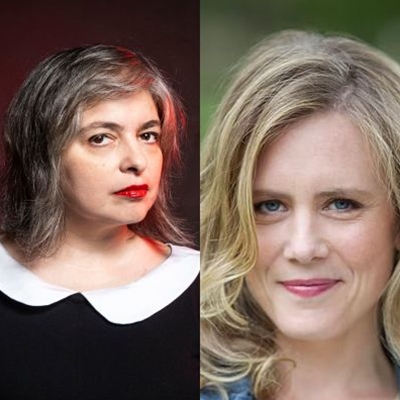
Event 79
Marta Williams, Beatriz Celaya and Sara Ayats in conversation with Luis Besa
Leadership, nationality and ethics
La Alhóndiga. Escenario Gales / Llwyfan Cymru
Marta Williams, journalist and expert in leadership and coaching, is considered 'the mother of coaching in Spain'. A much sought-after participant in conferences on the subject, she works as a teacher in advanced training programmes for executives who want to be better leaders. Beatriz Celaya directs the publishing house Alt autores. She became involved in the publishing world on the wave of the digital revolution. In her publishing work, she tries to adapt to all formats and new forms of cultural consumption. She organises the Jornadas del Autor for the Basque Writers' Association, of which she is vice-president. Sara Ayats is Cloud provider manager of VN Ware in Spain and Portugal, and president of Aseabel, the association of Former Students of Belgium Universities and Friends of Belgium.
They will be in conversation with Luis Besa, journalist and philosophy professor.
Event in Spanish
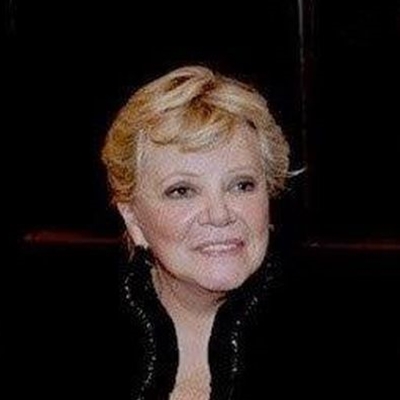
Event 5
Hamja Ahsan, Agustina Bazterrica, Ekaitz Cancela and Juan Manuel Robles in conversation with Karima Ziali
New narrative paradigms
Teatro Municipal
Official narrative, non-hegemonic narratives. How do the guests at this event position themselves? We talk to Hamja Ahsan (United Kingdom), Agustina Bazterrica (Argentina), Ekaitz Cancela (Spain) and Juan Manuel Robles (Peru) about their ways of narrating, and their choices when it comes to telling stories and representing reality. In conversation with Karima Ziali.
Simultaneous translation from English to Spanish available
With the support of British Council, Acción Cultural Española, AC/E and Casa Árabe
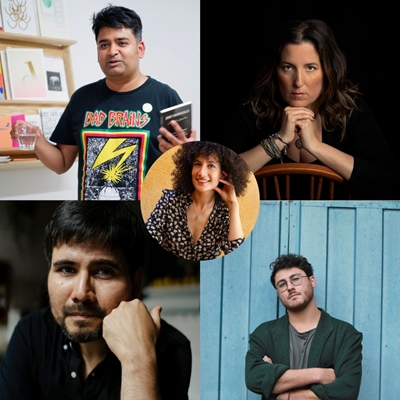
Event 80
Tiago Pitta e Cunha and Jesus Calero in conversation with Carlos Aganzo
A look to the ocean
IE University
Tiago Pitta e Cunha is one of the most significant international personalities on issues related to the oceans and the changes that need to happen in our attitude towards them. He has worked for over two decades to put maritime issues on political and institutional agendas. He has coordinated the European Union’s Integrated Maritime Policy at the office of the European Commissioner for Maritime Affairs and has represented Portugal and the EU at the UN in various international bodies dedicated to all matters related to the sea. Also director of the Oceano Azul Foundation, in 2021 he received the Pessoa Prize, awarded annually to Portuguese nationals who have distinguished themselves as outstanding figures in scientific, artistic or literary life. He will talk with Jesus Calero, director of ABC Cultural, who researches oceans and their shipwrecks,
They will discuss the need to care for the oceans with journalist and poet Carlos Aganzo.
With simultaneous translation from Portuguese to Spanish and vice versa.
Organized together with the Portugal Tourism Office, the Portuguese Embassy in Spain and El Norte de Castilla</em's Aula de Cultura
Event 10
Sponsored by the BBVA Foundation
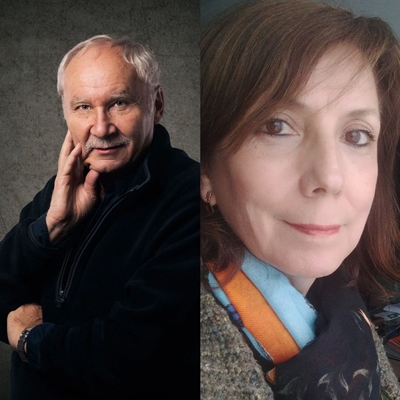
Event 82
Valerio Rocco and Isabel Fuentes in conversation
Culture, an engine of change
La Alhóndiga. Escenario Gales / Llwyfan Cymru
Culture is undoubtedly one of the main engines of change in a society. The directors of two of the country's most important cultural centres will return to the Festival they both know so well to debate this idea. Valerio Rocco has been director of the Círculo de Bellas Artes in Madrid since 2019 and was previously vice-dean of Research, Knowledge Transfer and the Library at the Faculty of Philosophy and Literature of the Universidad Autónoma de Madrid, where he teaches History of Modern Philosophy. Isabel Fuentes, PhD Museology of Natural and Human Sciences, has spent twenty years working in scientific communication and cultural management in institutions such as the Residencia de Estudiantes, the National Museum of Natural Sciences and La Caixa Foundation. She is currently the director of CaixaForum.
Event in Spanish
With the support of Segovia City Council
Event 15
Sponsored by the BBVA Foundation
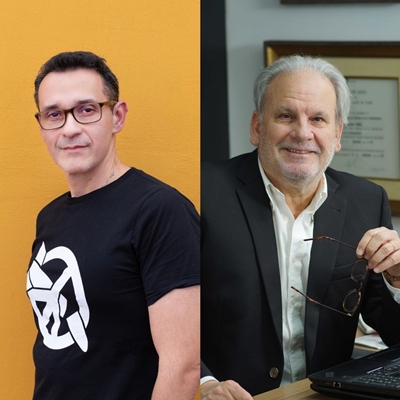
Event 84
Santiago Beruete and Alejandro Quecedo del Val in conversation with Beatriz González
Culture will save the planet
IE University
Santiago Beruete, writer and philosopher, author of Verdolatria, Aprendivoros and Jardinosofia, and Alejandro Quecedo del Val, young eco-social activist and author of the essay Gritar lo que está callado, will explore ways out of the Ecosocial Crisis produced by the Anthropocene: ecological, social and cultural transitions necessary to put an end to this state of war with the planet.
Moderated by Beatriz González, director of De Conatus publishing house
Event in Spanish
Signing at the stand of Calle Real
Organized together with De Conatus Publishing House
Event 20
Sponsored by the BBVA Foundation
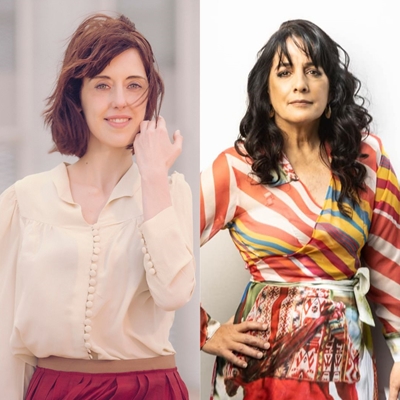
Event 85
Journey of the senses to Portugal
Cups of poetry and printmaking
La Alhóndiga. Escenario Gales / Llwyfan Cymru
Seven wines, seven poets and seven engravings will be the focus of a literary and artistic journey of the senses to Portugal. The expert hand of Maria de Lurdes Vale, Director of Tourism in Portugal, will use Portuguese wines, the words of Portugal's renowned poets, and the engravings and illustrations of Lisbon artist Manuela Crespo. She will guide us on a journey through the landscapes, villages, people and cities of each of the seven regions of the country with which Spaniards share so much. The regions represented by the wines and poets will be: Porto e Norte, José Régio; Lisbon, Fernando Pessoa; Alentejo, Florbela Espanca; Algarve, Antonio Aleixo; Açores, Natália Correia; Madeira, José Tolentino Mendonça.
Organized together with the Portugal Tourism Office and the Portuguese Embassy in Spain and the collaboration of Segovia City Council
Event 87
Novels like The Man Who Loved Dogs and Como el polvo en el viento have made Leonardo Padura one of the major voices in Spanish-language fiction. The creator of the detective Mario Conde has set the latest title in this series, Personas decentes, in his native city, Havana; the action takes place in 2016 while the city is preparing to receive the president of the United States, Barack Obama, as part of what was to become known as the Cuban Thaw. The book deals with the events surrounding the appearance of a murdered former member of the Cuban government, found dead in his apartment. The story also takes us back to the city a century previously, at a time when the arrival of Halley’s comet was expected. Padura, who is a fiction writer, journalist and screenwriter, is a Princess of Asturias Literature prize-winner.
The Cuban writer will talk to the novelist and journalist Jesús Ruiz Mantilla, the author of Papel and other works.
Event in Spanish
The writers will sign copies of their works at the stand located opposite the IE University
Organized together with Planeta Group
Event 25
Poetry gala
Teatro Municipal
Sponsored by Cerro Verde and with the support of the British Council, the Romanian Embassy and the Instituto Cervantes

Event 88
Ángel Martín in conversation with Ángeles Aguilera
Festival Closing Event. On Mental Health
IE University
Mental illness has a history of invisibility and prejudice and, for this reason, books such as Por si las voces vuelven are important in order to progress towards dismantling the myths about disorders that affect so many people. Ángel Martín, presenter, monologue performer, actor and streamer will talk about his recovery process after two weeks in a psychiatric ward. Apart from his book, he has also created a podcast, on which well-known artists directly tackle their mental health problems. He will talk about all this at the Hay Festival Segovia closing event with Ángeles Aguilera, Non-fiction Editor at Planeta.
Event in Spanish
Organized together with Planeta Group

Event 30
Daniel Mordzinski and Irene Vallejo in conversation with Jeremías Gamboa
Literature in images
Teatro Municipal
Sponsored by Cerro Verde

Event 1
Russia started the conflict in Ukraine in 2014 with the annexation of Crimea, and continues its war of aggression on the Ukrainian people. Countless families have lost their nearest and dearest. This event explores the experience and effects of love and loss.
Neurosurgeon Henry Marsh has worked for 30 years with colleagues in Ukraine and is helping doctors there to treat cases of trauma. His new book is And Finally: Matters of Life and Death. Rachel Clarke is an NHS palliative care doctor and author of Breathtaking, about life on the frontline during the first wave of the pandemic, and Dear Life, about her life in a hospice. Yurii Prokhasko is a literary critic-Germanist, translator, publicist, essayist and psychoanalyst who works at the Ivan Franko Institute in Lviv. Andrii Myzak is a neurosurgeon, and has translated into Ukranian Do no Harm by Henry Marsh and Dear Life by Rachel Clarke. Iryna Tsybukh is a teacher of media education at Youth MediaLab, is the author of Adviser for Young Journalists, and is a combat Medic at Hospitallers Paramedics.
Click here to watch this event in Ukrainian.
Closed captions are available for this event in English and Spanish. Click on the "cc" icon in the video frame to select.
Event 35
Philippe Sands (United Kingdom) is a well-known human rights lawyer and author of acclaimed works such as East West Street and The Ratline, and at this event he will talk to Felipe Gálvez about his most recent book, The Last Colony. Sands tells the painful story of the forced displacement of Liseby Elysé and other inhabitants of the Chagos archipelago in 1973, due to the strategic interests of the Cold War. Displaced to Mauritius in order to make room for a US military base, this book condemns British colonial injustice and its effects. With a story that includes history, essay and personal drama, Sands reveals the human tragedies behind the great historical events, underlining the need for justice and reparation, exploring the recent history of Chile and taking as a point of departure the lives and works of iconic figures such as Bruce Chatwin, Roberto Bolaño and the dictator Augusto Pinochet.
Simultaneous translation from English to Spanish available
With the support of the British Council and the Embassy of Chile
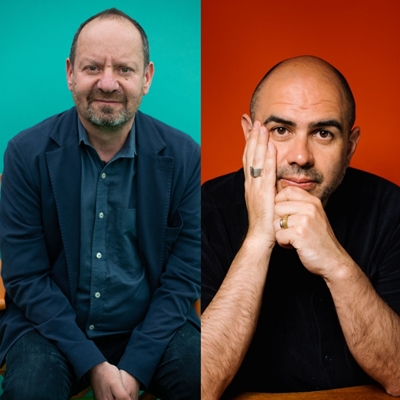
Event 40
Roberto Chang and Zaraí Toledo in conversation with Carlos Paredes Lanatta
The Peruvian economy and its challenges
Teatro Municipal
Sponsored by SURA
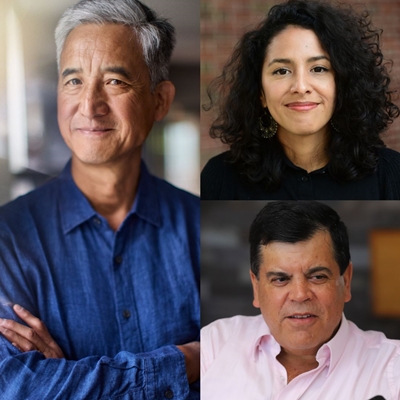
Event 2
Ukraine has been built by women. In the post-Soviet era, alcoholism and early death rates for men meant that women were the backbone of families and the economy. The Ukrainian army now has more women in it than any other except Israel. How will the war affect the struggle for women’s equality?
Emma Graham-Harrison is the Guardian's senior international correspondent. Lydia Cacho is a Mexican journalist, feminist, and human rights activist. Diana Berg is a Ukrainian activist, founder of Mariupol Art-Platform Tiu and organiser of the movement Donetsk is Ukraine. Yaryina Chornohuz is a poet military servicewoman and author of the collection How the Military Circle Bends. Janine di Giovanni is the co-Founder and Director of The Reckoning Project: Ukraine Testifies, a USAID-supported organization that documents and verifies war crimes and builds cases for international justice mechanisms.
Click here to watch this event in Ukrainian
Closed captions are available for this event in English and Spanish. Click on the "cc" icon in the video frame to select.
Event 3
The Turkish-British novelist, author of 19 books including The Island of Missing Trees and Booker-shortlisted 10 Minutes 38 Seconds in This Strange World, is an advocate for women's rights and freedom of speech. She talks to Charlotte Higgins, The Guardian's chief culture writer.
Closed captions are available for this event in English and Spanish. Click on the "cc" icon in the video frame to select.

Event 45
Natalia Sobrevilla and Irene Vallejo in conversation with Magally Alegre Henderson
Societies of the archive
Casa Tristán del Pozo - Fundación BBVA
Historical archives are sources of an incalculable value for understanding the past, present and future of nations. Natalia Sobrevilla is a historian, researcher and lecturer in the History of Latin America at the University of Kent (United Kingdom), and is also the author of Independence and Nation Building in Latin America. In the context of the crisis affecting the National General Archive, we want to highlight the importance of protecting this legacy, which belongs to all citizens. In her contemporary classic, Papyrus: The Invention of Books in the Ancient World, Irene Vallejo explores the development of the book and libraries in the ancient world, and how they became effective ways for transmitting and preserving ideas, while also pointing out that “a dislike of books is a tradition with strong roots in our history”. In conversation with the Head of the Riva-Agüero Institute’s Historical Archive, Magally Alegre Henderson.
With the support of the Eccles Institute for the Americas
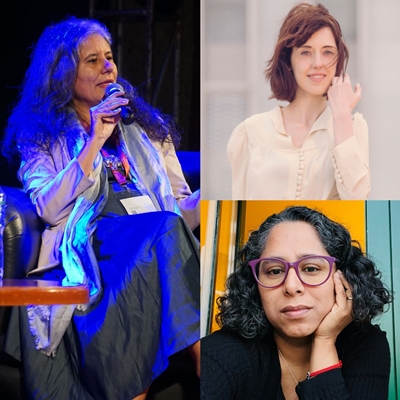
Explore All Genres
- 20 Questions
- Afrodescendencias
- South to South
- Architecture
- Art
- Arts & Culture
- Biography
- Children
- Culture
- Economics
- Education
- Equality
- Fiction
- Film
- Gender
- Globalisation
- History
- Human Rights
- Indigenous Cultures
- Journalism
- Literature
- Maths
- Memoir
- Music
- Nature & Environment
- Philosophy
- Photography
- Podcast
- Poetry
- Politics
- Science
- Technology
- Thinking
Partner for Latin America

Principal Sponsors



Government Partner

